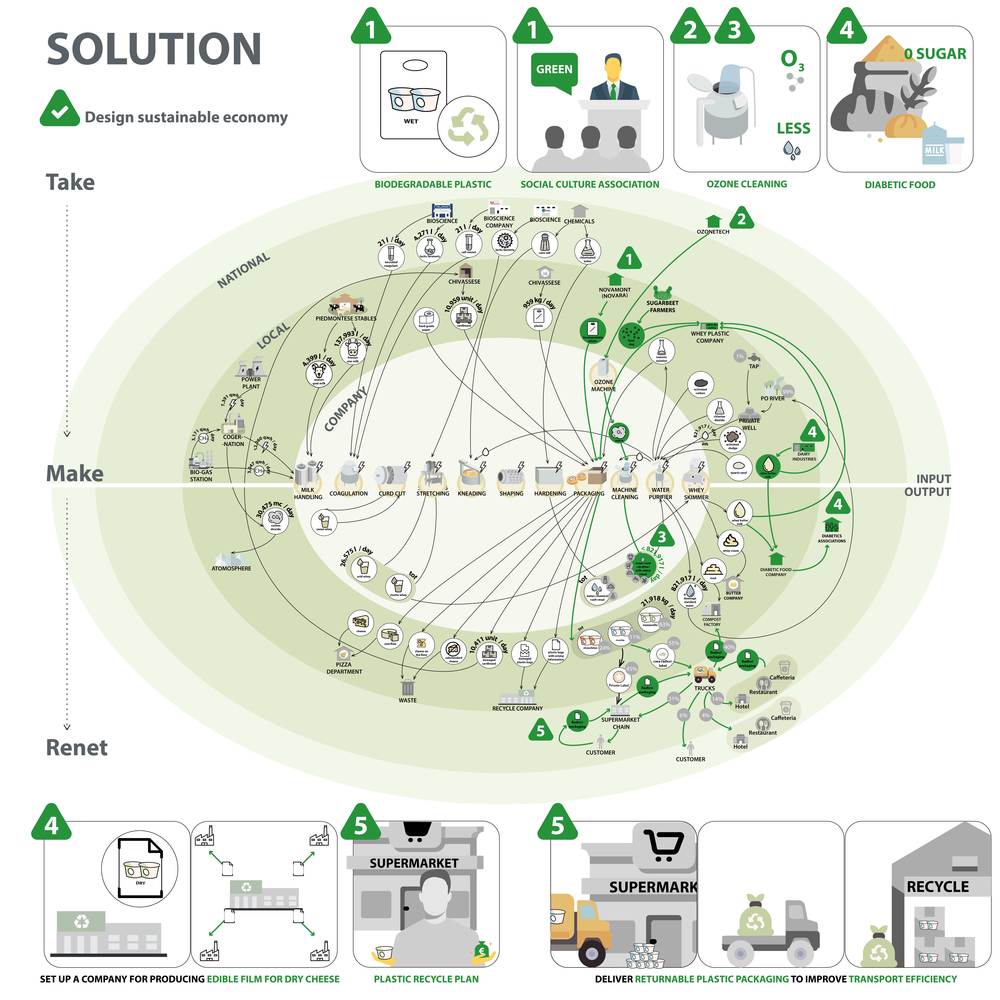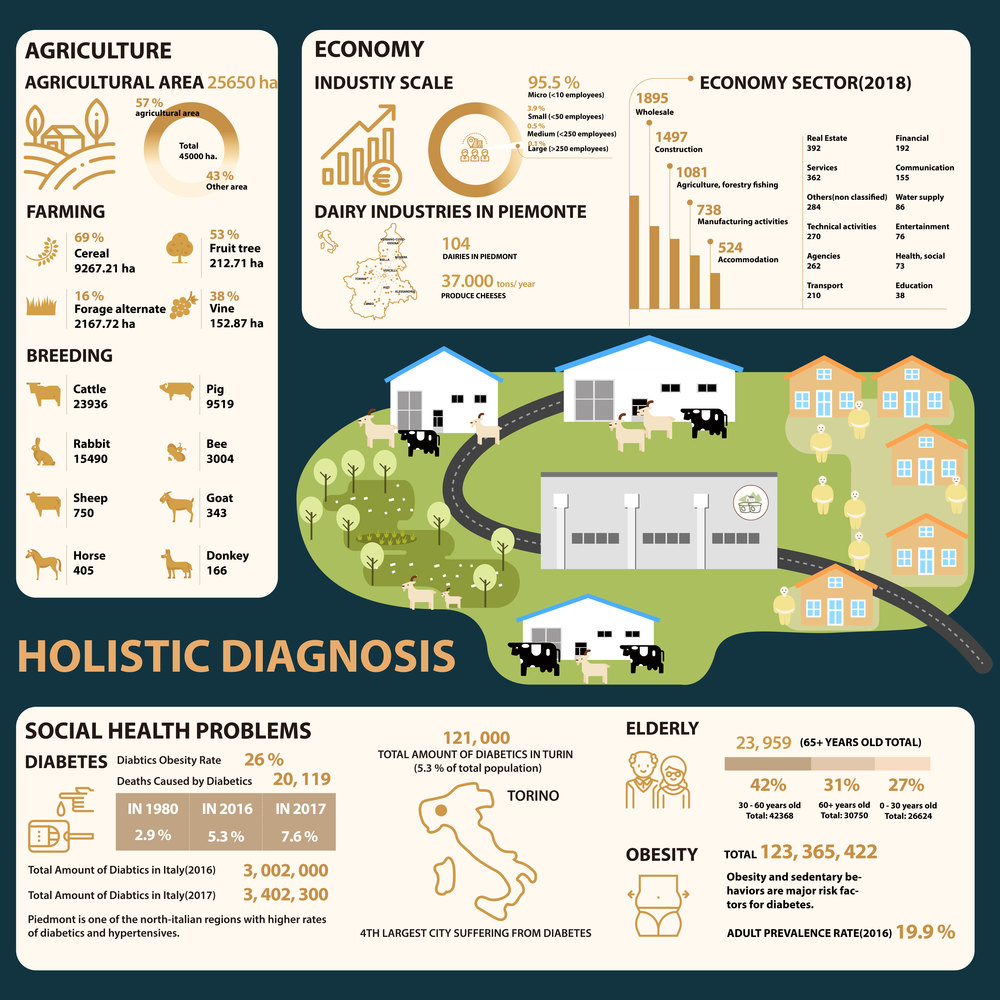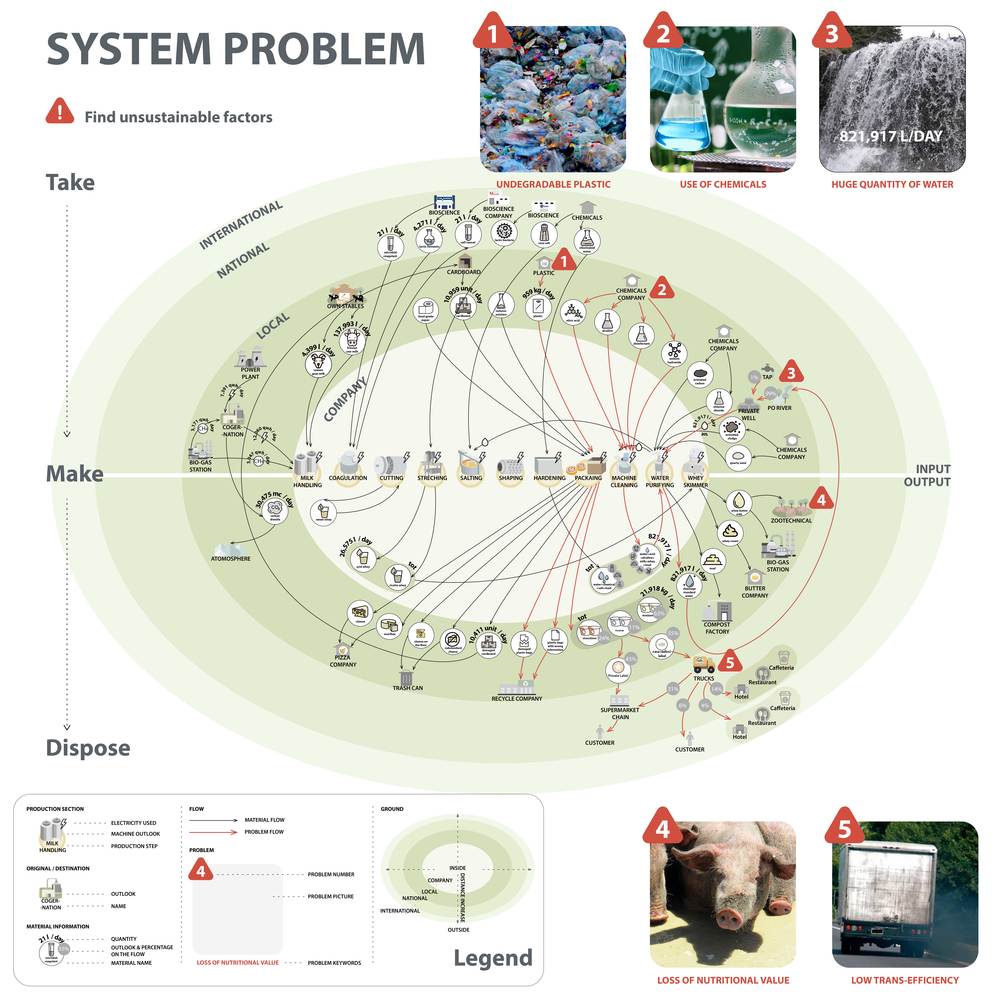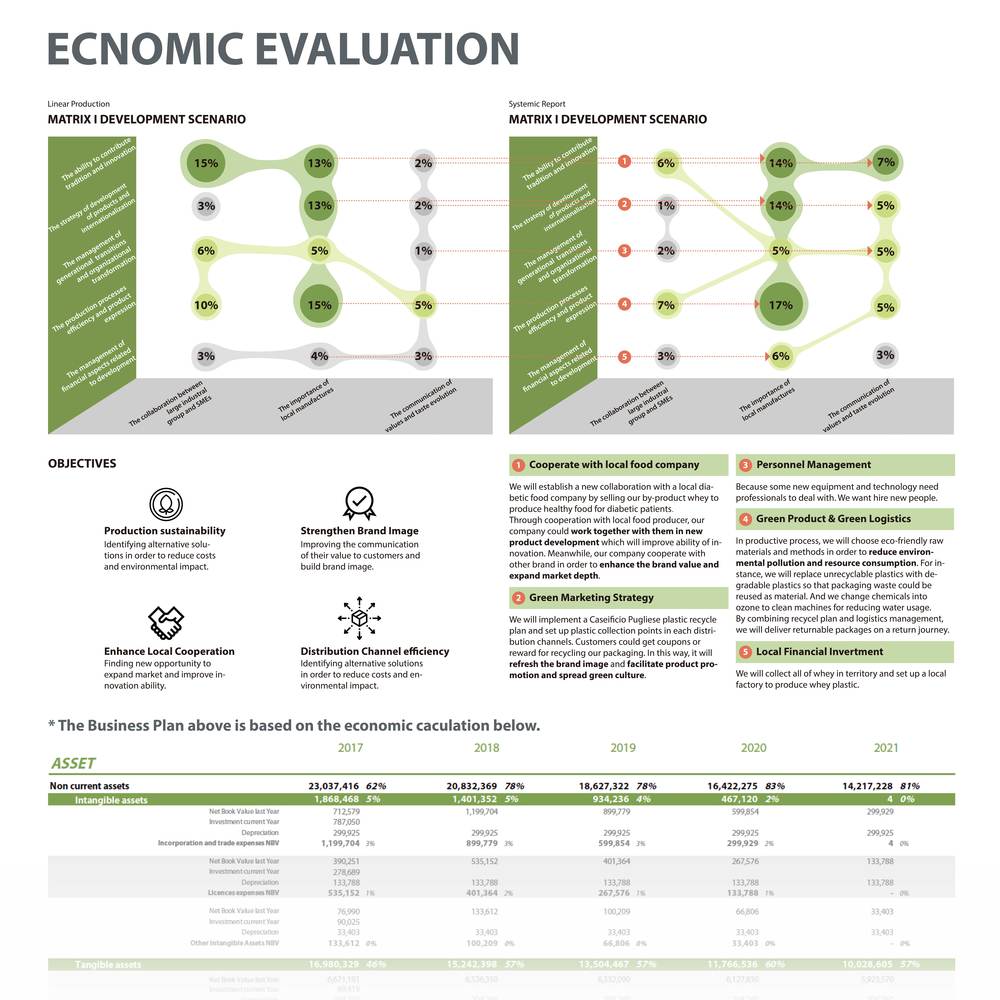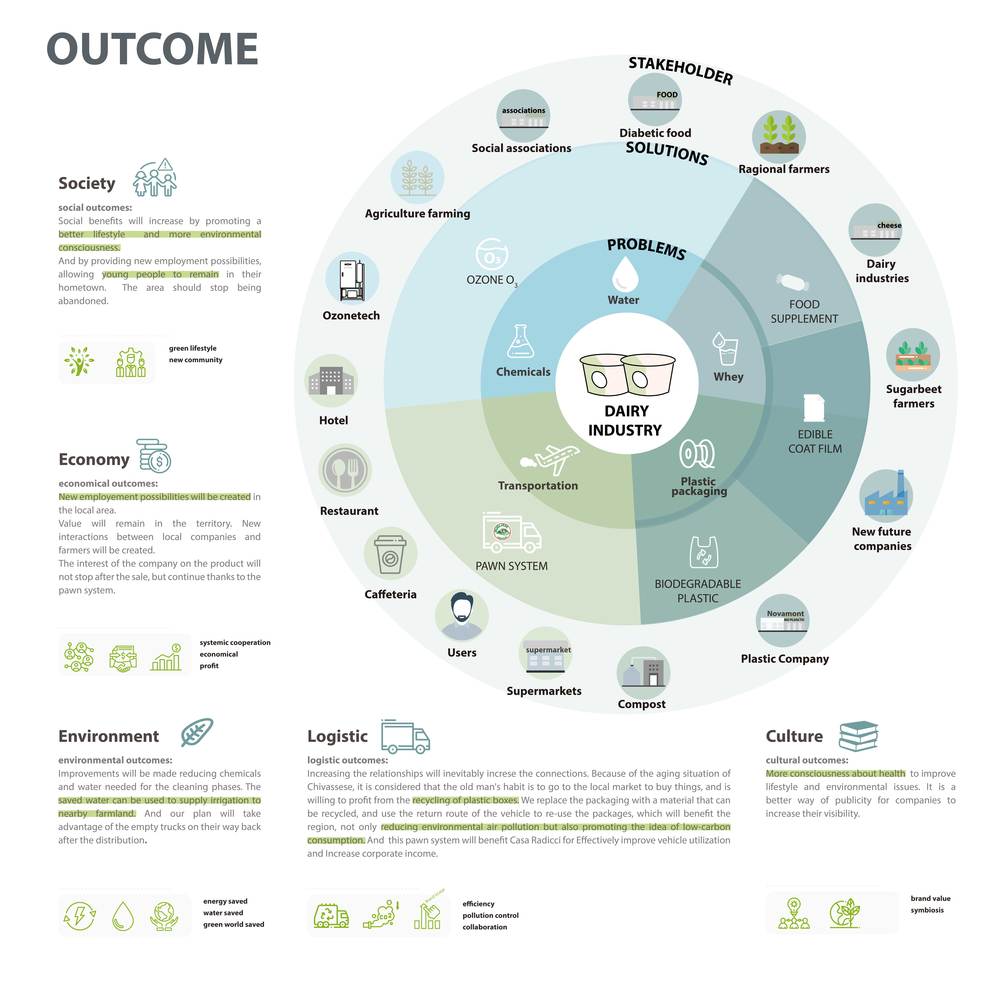Honorable Mention
ReNet: Local Resource Reintegration – Green Cheese Production
Promote the sustainability transition in cheese production by reconnecting local resources
Solution
Our solution visualized interconnections in cheese production and consumption system, that visual narratives promoted shared understanding between designers and stakeholders in sustainability. Meanwhile, we reconnected local resources and designed a regenerating localized production system.
Project Description
ReNet rethinks current take-make-dispose liner food production system. Our mission was to enable company to see ecological, social and economic unsustainable factors in current system. And using design to drive and facilitate the transition towards responsible production and consumption. The project has been done in four parts. Firstly, through visualizing interconnections in system, we depicted the big-picture and provided an accessible network to stakeholders. Secondly, with the interdisciplinary support, we diagnosed system problems that have a negative impact to human health and environment. Thirdly, we designed multi solutions for different types of problems. Fourthly, the economic feasibility of new system was evaluated. Our final solution helped company to integrate local resources and regenerate a sustainable and localized food production system. All the solutions are interrelated and mutual promoted, bringing benefit to the surrounding.
Overview of the Solution
The project aimed to enable stakeholders to see ecological, social and economic unsustainable factors in current linear cheese production system. Our mission was to transform current take-make-dispose linear model to a self-generated open system by providing a systemic perspective. Through collecting qualitative and quantitative data of input and output, we visualized material and energy flow of whole process of cheese production activities. These visual narratives highlighted the impact of cheese production on ecology environment and promoted shared understanding between designers and stakeholders.
Five problems can be diagnosed, which are related to material or energy consumption and waste treatment. From the source, unsustainable materials and methods were designed out. During the production, wastes and by-products were treated as resources. After use, closed-loop recycling, resorting, reusing chain were built. More specifically, in order to minimize negative externalities, we chose eco-friendly materials from the source. We replaced non-degradable plastic packaging that have negative impact to natural systems. We used ozone to clean machines, which is quick to remove organic materials and reduce water usage. Through communicating and reconnecting with local food companies, we transformed the by-product whey buttermilk into valuable food products which meet the demand of diabetic patients in northern Italy.
Our solution about plastic packaging created an after-use plastics economy from five parts. Firstly, we extend the life cycle of our plastic packaging by using degradable one. So that it can still be used for compost. Secondly, we built a novel material company for local food producer. By using whey protein and sugar beets in surrounding area, a biodegradable edible coat film can be produced, which provides a renewably sourced material for food packaging. Thirdly, we implemented a plastic recycle plan and set up plastic collection points in each distribution channels like supermarkets. We encouraged customers and distributors to recycle and return our packaging with rewards system. Fourthly, we designed a green logistic model. After our trucks dropped off the goods, it delivered returnable packaging on a return journey. Finally, we reuse some post-consumer packaging and sold rest of them to compost plant.
PROJECT TEAM
Hanlin She, Chu Wang, Mengying Deng, Jiarong She, Valentina Palazzo, Wen Lu and Anqi Xu
INSTITUTION
Politecnico di Torino, DAD, Italy
Category
System
FACULTY/COURSE ADVISOR
Silvia Barbero, Chiara Battistoni, Francesca Valsecchi
STAKEHOLDERS
A Cheese Company in Chivassese, Turin, Italy (Name of company withheld due to confidentiality)
